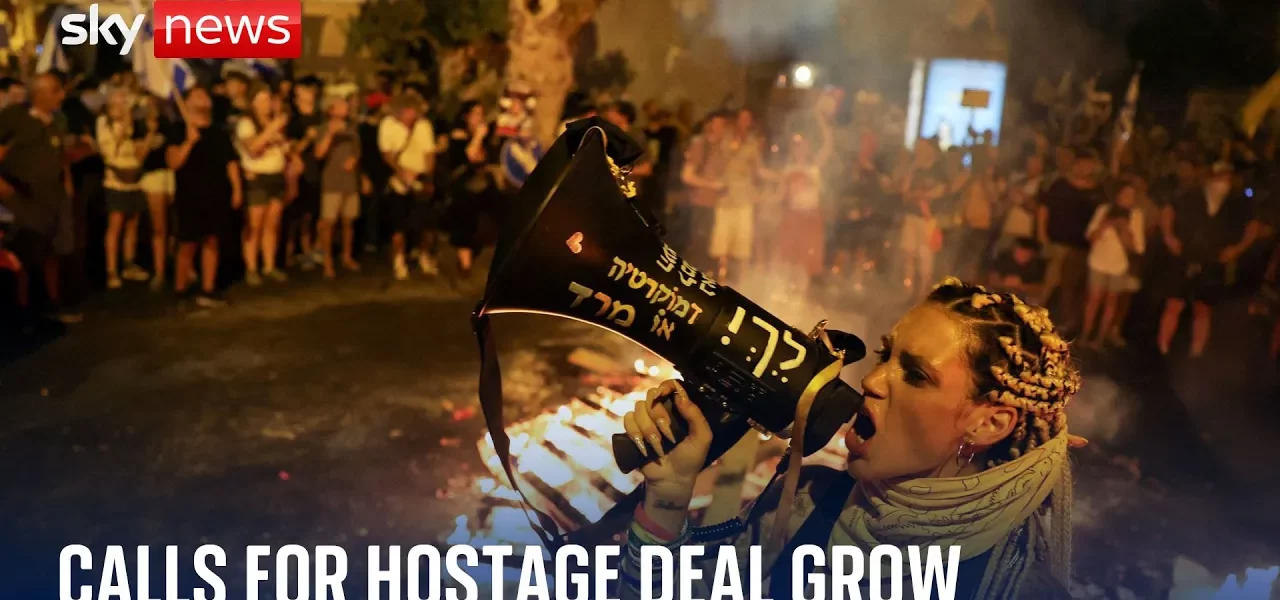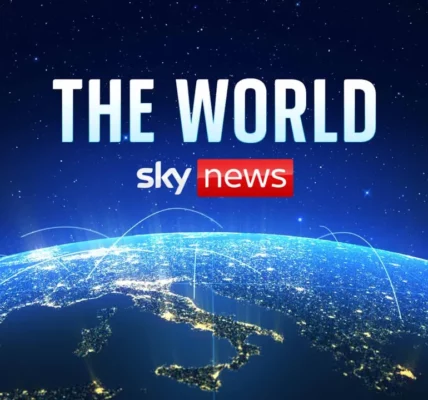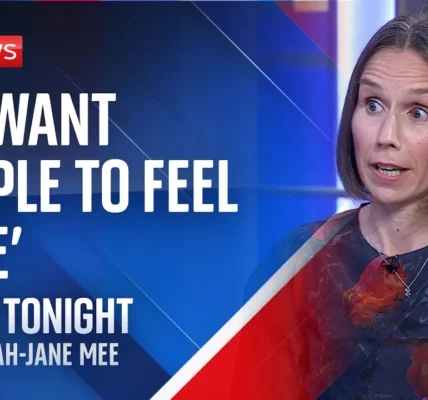Protests in Tel Aviv: A Call for Change and Justice

The day in Tel Aviv unfolded with a fervor that echoed the previous night, as protesters rallied vocally for a hostage deal and the resignation of Prime Minister Benjamin Netanyahu. This article delves into the events surrounding the protests, the general strike called by the country’s largest public sector union, and the broader implications for Israeli society.
Introduction
The atmosphere in Tel Aviv was charged as demonstrators took to the streets, voicing their demands for a resolution to the hostage situation affecting many families across Israel. The protests were not just a spontaneous reaction but part of a larger, organized effort led by the largest public sector union in the country. This article examines the motivations behind the protests, the state of civil unrest in Israel, and the implications of a general strike on the nation’s politics.
The Nature of the Protests
The protests in Tel Aviv were marked by a significant turnout and passionate expressions of dissent. The demonstrators were unified in their calls for change, demanding a hostage deal and the resignation of Netanyahu. The protests were characterized by:
- Vocal demonstrations with chants and slogans.
- Direct confrontations with police as demonstrators attempted to maintain their presence on key roadways.
- Emotional appeals from families affected by the hostage situation.
The Role of the Public Sector Union
The general strike, called by the country’s largest public sector union, aimed to paralyze normal operations across Israel as a form of protest against the government’s inaction. This unprecedented move was intended to pressure the government into negotiations regarding the hostage situation. The implications of this strike include:
- Disruption of essential services, affecting daily life for many citizens.
- Increased visibility of the protesters’ demands.
- Potential shifts in political stance from government officials under public pressure.
Escalation of Tensions
As the protests continued, moments of tension between the demonstrators and law enforcement became increasingly common. Police efforts to maintain order included attempts to keep roads open, but demonstrators often regrouped and returned to block major junctions, illustrating their determination. Notable incidents included:
- A woman being forcibly detained by police, later breaking free amidst the chaos.
- Large crowds consistently converging on critical intersections, showcasing the protesters’ resolve.
Public Sentiment and Reactions
The sentiment among protesters was clear: they were unwilling to relent until their demands were met. Their determination was echoed in the voices of individuals who expressed a readiness to escalate their actions if necessary. This level of commitment has raised concerns about the potential for a civil revolution, with many comparing the current unrest to significant historical movements.
Memorials and Reflections
In a poignant juxtaposition to the protests, a memorial service was held for HS Goldberg Poland, whose parents have become symbols of the fight for justice. Hundreds attended the service at Mount Herzl, demonstrating the deep personal impact of the hostage crisis. The emotional tributes highlighted:
- The parents’ tireless campaigning for their son’s release.
- The collective grief felt by families affected by the ongoing crisis.
- The hope that their loved ones will return home safely.
Government Response
In response to the growing unrest, Prime Minister Benjamin Netanyahu addressed the nation, maintaining a defiant stance. His refusal to alter the government’s course has led to increased frustration among citizens. Key points from his address included:
- Acknowledgement of the hostages’ situation but a commitment to the government’s current strategy.
- References to historical challenges Israel has faced and the sacrifices made for national security.
- A dismissal of the protesters’ demands as he sought to convey strength in leadership.
Public Reaction to Netanyahu’s Address
Despite Netanyahu’s attempts to project confidence, the protesters in Tel Aviv reacted with renewed vigor, indicating a disconnect between the government and the people’s sentiments. This active resistance suggests that the public feels empowered to continue their protests until significant changes are made.
Conclusion
The protests in Tel Aviv represent a critical moment in Israeli society, highlighting deep frustrations regarding government actions and the ongoing hostage situation. As citizens continue to rally for change, their unified voices underscore a collective demand for justice and accountability. The situation remains fluid, and the potential for further civil unrest looms large. As the protests evolve, it is essential for observers and participants alike to stay informed and engaged. For more about the ongoing situation and its implications, consider exploring our related articles on Israeli politics and social movements.
“`




